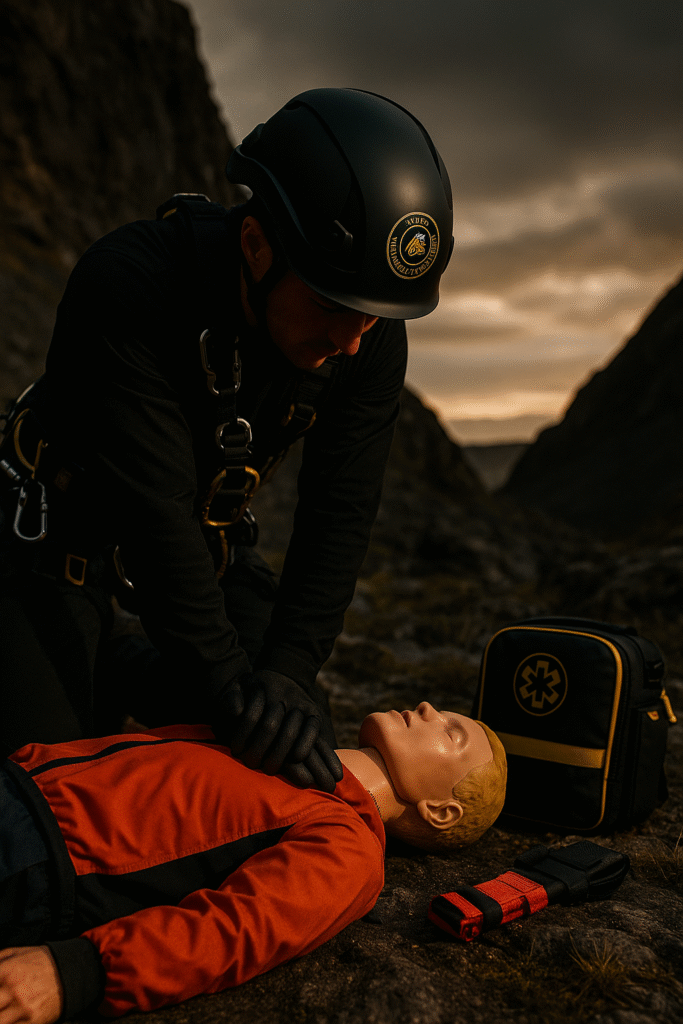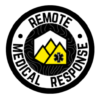
When lives hang in the balance at height, in confined spaces, or in remote terrain, standard training isn’t enough. At Remote Medical Response Ltd, we deliver realistic, hands-on courses that prepare rope access technicians, remote workers, and industrial teams for real-world emergencies. With practical scenarios, live kit, and expert instructors, we ensure every delegate leaves with more than just a certificate—they leave with confidence.
Our Courses: Built for the Real World We currently offer two essential training pathways:

A HSE-recognised 1-day course tailored to rope access, forestry, and remote work environments. Topics include:
-
- DR(C)ABC primary survey
- CPR & AED (including harnessed casualty considerations)
- Catastrophic bleeding (tourniquets, haemostatics, wound packing)
- Crush injuries, hypothermia, Lyme disease, and suspension trauma
- Site-specific emergency planning

Delivered as a short awareness or practical module, this course empowers individuals to recognise and treat life-threatening bleeding using modern trauma tools. Perfect for safety leads and high-risk environments.
IRATA Level 3? First Aid is Not Optional
Under IRATA guidelines, all Level 3 Technicians must hold a valid and appropriate first aid qualification. Our EFAW+F course ensures compliance with HSE standards while remaining tailored to the vertical environment rope techs operate in.
Why Hands-On Training Matters
Many courses rely heavily on PowerPoint and tick-box assessments. But real trauma doesn’t happen in a classroom. That’s why our training uses:
-
- Casualty manikins in harnesses
- Environmental simulation (cold, noise, stress)
- PPE, rope access equipment, and realistic kit
Experience That Sets Us Apart
Our instructors come from backgrounds in:
-
- Fire and rescue
- The UK ambulance service
- Military operations and trauma medicine
- Remote medical deployments.
- They bring decades of real-world experience and a calm, professional approach to every session.
Conclusion: Train for the Environment You Work In
If your worksite isn’t a classroom, your first aid training shouldn’t be either. At Remote Medical Response Ltd, we help teams build practical capability, not just theoretical knowledge.
Ready to upgrade your team’s training?

